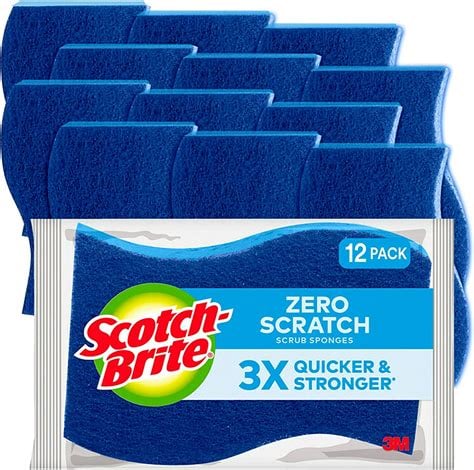How to clean airfryer basket?
-
[email protected]replied to [email protected] last edited by
Try soaking it again overnight but with dishwasher detergent instead of normal dish soap
-
[email protected]replied to [email protected] last edited by
Not silly, that's a common cleaning technique from janitor/cleaning staff i was told a while back. Use a little bit of what causes the stain/gunk and it helps break down the bonds by binding with the already-solidified object and trying to mix with it, weakening/changing the concentration of the 'stuck' substance
-
[email protected]replied to [email protected] last edited by
Try this: slice a lemon in half. Put it in a heat-resistant bowl. Place bowl into airfryer and set at 200 Celsius for 20 minutes. It'll probably smoke, so make sure to ventilate well.
After that, you may be able to wipe most of the grease away with a cloth.
-
[email protected]replied to [email protected] last edited by
Can you not heat it up, and then pour out?
-
[email protected]replied to [email protected] last edited by
Is it teflon coated? If so you should be careful. Many of the suggestions here are for increasingly abrasive options which will scratch that coating and cause it to eventually flake off, which means it will get into your food, which definitely not something you want to eat
On one hand the grease itself is probably not a food safety issue anymore. Similar to a cast iron pan once oil/grease heats enough on a surface it polymerizes and essentially bonds to the surface. This is generally safe unless the oil is exposed to very high temps (beyond what is typically used for cooking) but it looks bad on stuff like sheet pans
However you do want to be a bit more diligent cleaning as a result. Unlike a cast iron pan where the polymerization layer (seasoning) is generally very smooth this is generally not; it is bumpy and has more nooks and crannies. This means there are more areas where filth and bacteria can be harbored. Not a huge issue, just make sure you clean well.
-
[email protected]replied to [email protected] last edited by
The category of chemicals you're looking for are called de-greasers.
-
[email protected]replied to [email protected] last edited by
We try to clean ours every time and got a few little boat things to keep the mess down. Looks brand new half a year later
-
[email protected]replied to [email protected] last edited by
Hand wash with soap after each use? What are people saying in the comments about built up oil?
-
[email protected]replied to [email protected] last edited by
Hand wash with soap after each use
-
[email protected]replied to [email protected] last edited by
baking soda did nothing
soap did nothing
trying a dishwasher tablet next
-
[email protected]replied to [email protected] last edited by
Soak the basket in 50% vinegar: water. Then run the air fryer with some vinegar in it to clean out the rest of it.
Vinegar is an acid which works great on grease.
Baking soda is basic and works great on carbon build ups. -
[email protected]replied to [email protected] last edited by
Post a picture of it, the basket and the mesh.
If it's really bad then like someone else suggested: get some oven degreaser from the store, spray it down, let it sit for 10 minutes and wash off with hot water. Try not to breath the stuff, it's nasty.
But you should be cleaning it weekly. Warm it up for a minute or two, then with folded paper towels wipe it out over a trash can. Leaving a light coating is actually to your advantage, it will keep the new stuff from sticking.
-
[email protected]replied to [email protected] last edited by
Maybe, but it’s gross as duck

-
[email protected]replied to [email protected] last edited by
One common, readily available, relatively unharmful type is citrus decreasers like Citrisolv or similar.
-
[email protected]replied to [email protected] last edited by
Get the dangerous alkaline concentrate and dilute it as directed for the situation. It's much cheaper. Whatever environmental concerns are canceled out because 1 gallon was transported instead of 64-128 gallons.
-
[email protected]replied to [email protected] last edited by
I buy the orange stuff by the gallon because I can use it for bike chain degreasing, and woodworking ( as a solvent for oil finishes, etc.), etc.
-
[email protected]replied to [email protected] last edited by
When we want to break hydrocarbon chains we use bases by default. But, I'd not use a base on a bike chain because if it rusts even a little bit it's junk.
For woodworking why is this better than mineral spirits?
-
[email protected]replied to [email protected] last edited by
I don't know about 'better', but I prefer it for being less fumey, I feel better about occasionally getting some on my skin, and prefer not using petroleum derivatives. I know there's low fume mineral spirits and I've used that for paint cleanup, but i'm not confident it behaves the same for finishes.
-
[email protected]replied to [email protected] last edited by
That makes sense. I'll give it a try. Thank you for teaching me.
-
[email protected]replied to [email protected] last edited by
The blue sponges that ate for non stick are softer than the normal green ones. The rough side of the blue ones are safe for non stick assuming your aren't giving it everything you've got.
These ones:



